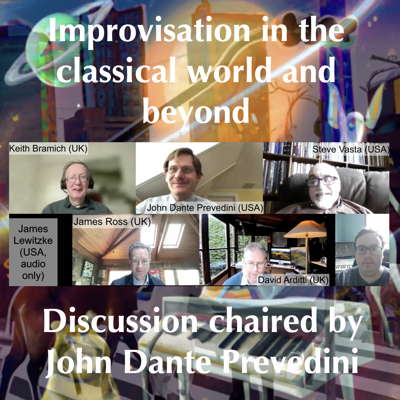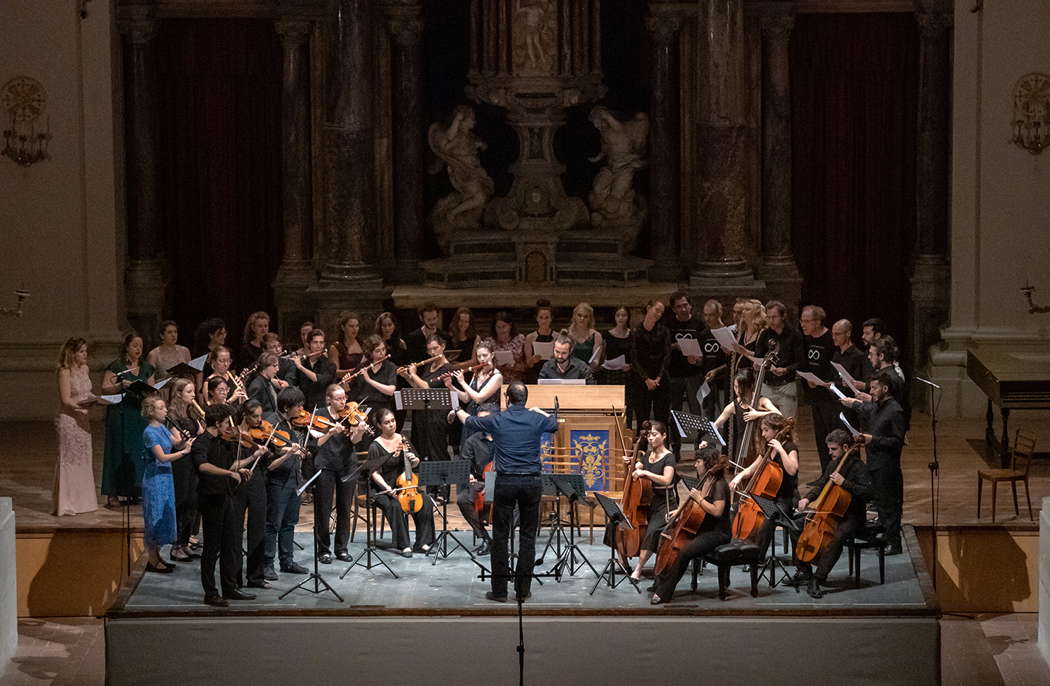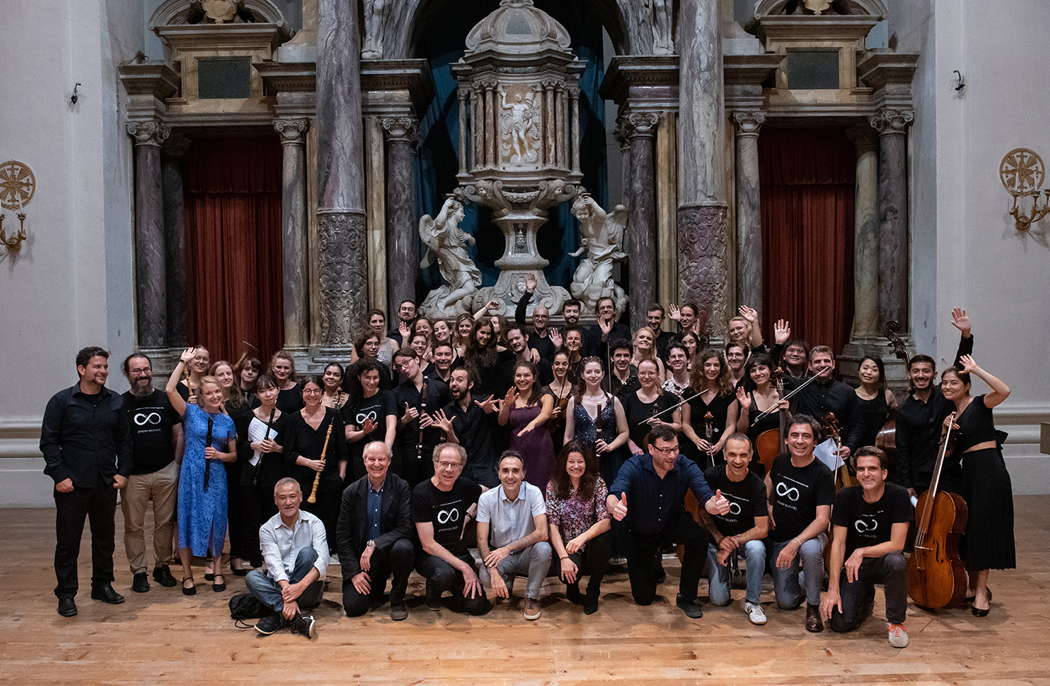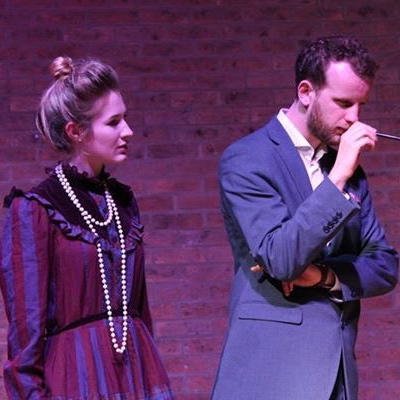 DISCUSSION: John Dante Prevedini leads a discussion about Improvisation in the classical world and beyond, including contributions from David Arditti, James Lewitzke, James Ross and Steve Vasta.
DISCUSSION: John Dante Prevedini leads a discussion about Improvisation in the classical world and beyond, including contributions from David Arditti, James Lewitzke, James Ross and Steve Vasta.
Baroque Music in Siena
GIUSEPPE PENNISI returns for the last weekend of the Chigiana International Festival and Music Academy
Starting on 5 July 2022 with a concert featuring music by Luigi Nono and Gustav Mahler, the Chigiana International Festival and Music Academy ended at the beginning of September with two concerts of baroque music in co-production with the Salzburg Mozarteum University, with which the Chigiana Academy has a fruitful collaboration. The Festival involved over ninety concerts and an opera performed in Siena and its surroundings. The concerts were developed around the theme 'From Silence': in a certain way, this was the return to listening to the beauty of music after two years in which the pandemic limited the activities of concert halls and opera houses worldwide. The path has privileged contemporary music - twenty-eight world premieres of which six were commissioned by the Chigiana Academy - and modern - thirteen concerts dedicated to Luigi Nono, chosen as a contemporary composer to pay homage to this year - but it has not neglected the nineteenth century - the opera staged was Il Signor Bruschino by Gioacchino Rossini.
Concluding with Baroque music means reconnecting to the origins of the concentric activities of the Chigiana Academy, which will be one hundred years old in a few months. The festival has rapidly become one of the most important in Europe. The public is increasingly international; the many foreigners who reside part of the year in Tuscany have acted as 'word of mouth' and, recently, there are groups of music amateurs who reach Siena from abroad, not only for the world famous horse race, Il Palio, but also for the musical events.
The Italian Ministry of Culture classified the 2021 edition of the festival as the best of the year for quality. It is useful, in this regard, to remember that in Italy, since the beginning of the nineteenth century, Baroque music in general and Vivaldi in particular had been practically forgotten. With their works no longer performed, only a few scholars of music history were interested. In the twentieth century, thanks to the tenacity of musicians such as Alfredo Casella and Gian Francesco Malipiero, Baroque composers were rediscovered. Vivaldi was the protagonist of the first 'Settimana Chigiana' - a one-week festival which started in 1939 and was replaced eight years ago by the two-month long Chigiana International Festival and Music Academy. In 1939, the event attracted the attention of the whole music world, both Italian and foreign.
Let us now come to the two concerts given on 2 and 3 September 2022. Vivaldi's La Senna festeggiante was almost a premiere because only one previous performance can be recalled, in the years immediately following the Second World War, with the then young Carlo Maria Giulini on the podium. Technically, it is a 'serenade', which, in the baroque lexicon, means 'serene music' to be performed in a 'serene' place, better if outdoors. The first performance took place in the gardens of the Palazzo of the French Ambassador in Venice in 1726 to celebrate the renewed friendship (and alliance) between the Kingdom of France and the Venetian Republic. A 'serenade', therefore, for a specific occasion. Vivaldi wrote a couple for the event. In this case, he had, as librettist, Domenico Lalli.
The libretto is typical of a celebratory work for an evening in which there was undoubtedly a banquet, and ample time was left for guests to converse and entertain diplomatic and para-diplomatic relations. The work, of a duration of a little less than an hour and a half, is divided into two parts and is an allegory of simple understanding. In the first part, the Golden Age (soprano Zsòfia Szabò) and Virtue (contralto Marta Pacifici) wander in desolate lands in search of their lost happiness. They meet the Seine River (bass Roland Faust) who promises them that they will arrive at the end of their wandering. The atmosphere is one of rejoicing. A journey begins to take them to the Court of the King of France, Louis XV. The second part is entirely a tribute to the King.
It is a work with closed musical numbers. The arias are, in a certain way, prepared by recitatives where that little bit of action required by the libretto takes place. There are two duets in the first part and one in the second. The 'evening' is open and closed by a 'choir', in fact a trio sung by the three soloists. In the score, Vivaldi introduces various elements of what was then considered the 'French style'. These are rapid changes, if not sudden, of melody and harmony. The orchestral ensemble, which, although little nourished - after all La Senna festeggiante was programmed to be staged in a garden, not in a theatre - includes, in addition to the basso continuo, soloists who know how to demonstrate their virtuosity: Hiro Kurosaki on violin and Marco Testori on cello.
It was an excellent performance. Alfredo Bernardini has held and conducted concerts of baroque music all over the world and is a professor at the Mozarteum in Salzburg. Among the three voices, Roland Faust stands out for extension of register and perfection of diction. The hall was sold out, and the applause and accolades were very warm.

Baroque music being performed at the Chigiana International Festival and Music Academy. Photo © 2022 Roberto Testi
On 3 September, at the end of the Festival, came a concert unusual for its duration - about three hours without interval - and for the richness of its program: twenty-eight pieces of baroque music performed by the teachers and students of the masterclasses curated in partnership between the Chigiana Academy and the Salzburg Mozarteum. It was not an end-of-course essay because teachers and former students played together in philological editions. This is a Baroque which reaches up to a youthful sonata by Mozart, with which classicism begins.
It was an exciting evening both for the enthusiasm of the performers and for the opportunity to listen live to music by composers - such as William Lawes, Jean-Marie Leclair, Georg Christoph Wagenseil, Antoine Forqueray, Charles Dieupart and Louis-Antoine Dornel - of which recordings are usually heard because they are rarely scheduled in concerts. Alongside famous pieces (such as those extracted from Vivaldi's Juditha Triomphans or from Handel's Giulio Cesare e Il trionfo del tempo e del disinganno) were others less known, such as an extract from Bach's cantata Herr gehe nicht in's Gericht, with which the whole company closed the evening in a real grand finale.

The full company at the Chigiana International Festival and Music Academy. Photo © 2022 Roberto Testi
I predict that, during the coming years, many instrumental soloists and singers who participated in the evening will have begun their professional careers in opera houses and concert halls. It is not up to me to give names - that might seem like ranking them. Many wishes to all and thank you for a beautiful evening.
Copyright © 8 September 2022
Giuseppe Pennisi,
Rome, Italy




